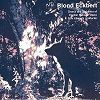JUDITH WEIR
by
Julie Williams
After the Christmas
festivities have subsided, a British
music lover’s thoughts may well turn
to the BBC Composer Weekend held annually
in January at the Barbican Centre in
London. (Jan 18-20 2008 Barbican)
This year’s
event is a very promising weekend,
devoted to the Scottish composer Judith
Weir. Its title is ‘Telling the
Tale’, which links to the composer’s
strongly narrative work and her interest
in a wide range of mythology and folklore.
Born in 1954, from
a Scottish family, Judith Weir grew
up in Buckinghamshire in the Home Counties.
Whilst still at school, she took lessons
from John Tavener - who was based not
far away. She also played the oboe in
the National Youth Orchestra. Her musical
education then continued at Cambridge
University.
Judith Weir’s Celtic
origins have been a strong influence
on her work and are one of the sources
of the material she has drawn on. However,
the piece which first brought her to
prominence was entitled ‘A Night at
the Chinese Opera’ (1987) - to be revived
in Scottish Opera’s 2008 season. For
this she wrote not only the music but
also the libretto. This had been preceded
by two other musical dramas ‘The Consolation
of Scholarship’ (1985), also with a
theme from Chinese mythology, and ‘King
Harald’s Saga’ (1979), occasionally
known irreverently as ‘1066 in 10 minutes’!
Her writing for the
voice is clear and direct, with a simplicity
reminiscent occasionally of plainchant.
Its style is ideally suited to the setting
of poetry, such as in the song-cycle
‘woman.life.song’, a kind of modern-day
version of Schubert’s similarly themed
work, where the texts are by Maya Angelou,
Clarissa Pinkola Estes and Tony Morrison.
It also works well in opera and musical
drama, where a clear narrative accompanied
by occasional dramatic orchestral moments
is particularly effective. Her work
has been widely praised for its accessible
style, which has also found favour in
community and educational projects.
 In
the following year, 1988, another musical
drama followed, ‘Missa del Cid’ which
uses the format of the Mass but is based
on the bloodthirsty legend of El Cid.
Weir’s considerable talent for this
form has been expressed in two more
full-length operas, both inspired by
folk tales: ‘The Vanishing Bridegroom’,
based on three tales from her native
Scotland, and ‘Blonde
Eckbert’, which has German sources.
In
the following year, 1988, another musical
drama followed, ‘Missa del Cid’ which
uses the format of the Mass but is based
on the bloodthirsty legend of El Cid.
Weir’s considerable talent for this
form has been expressed in two more
full-length operas, both inspired by
folk tales: ‘The Vanishing Bridegroom’,
based on three tales from her native
Scotland, and ‘Blonde
Eckbert’, which has German sources.
Her compositional talents
extend beyond this form. During the
1990s, she was appointed Resident Composer
with the City of Birmingham Symphony
Orchestra. This produced ‘We Are Shadows’
and ‘Forest’. Commissions were also
placed with her by the Boston Symphony
Orchestra (‘Music Untangled’ and ‘Natural
History’ – a Taoist bestiary); the Minnesota
Orchestra (‘The
Welcome Arrival of Rain’) and Carnegie
Hall (the song-cycle ‘woman.life.song’
for Jessye Norman, also performed at
the 2000 Proms).
 She
has also composed purely instrumental
pieces for various combinations of chamber
players. A good survey of these is collected
on the NMC
disc D090. The first disc concentrates
on piano music – a small scale concerto
(a particularly enjoyable piece); a
piano trio; a piano quartet and a piece
for violin and piano entitled ‘Music
for 247 Strings’ - reflecting a more
even balance between the instruments
than the classic violin sonata with
piano accompaniment. Material from folk-song
is used effectively, ‘The Sweet Primroses’
in the second movement of the piano
concerto, and ‘Blanche comme la Neige’
in the Piano Quartet.
She
has also composed purely instrumental
pieces for various combinations of chamber
players. A good survey of these is collected
on the NMC
disc D090. The first disc concentrates
on piano music – a small scale concerto
(a particularly enjoyable piece); a
piano trio; a piano quartet and a piece
for violin and piano entitled ‘Music
for 247 Strings’ - reflecting a more
even balance between the instruments
than the classic violin sonata with
piano accompaniment. Material from folk-song
is used effectively, ‘The Sweet Primroses’
in the second movement of the piano
concerto, and ‘Blanche comme la Neige’
in the Piano Quartet.
The second disc offers
earlier works (1988–1993) in recordings
released previously on Collins Classics.
In this selection piano music remains
prominent, but there is a String Trio
as well as pieces for both piano and
strings. The works are predominantly
thematic rather than abstract. A wide
variety of material inspires them –
Scottish, Croatian, the work of Couperin,
the work of Schubert. It concludes with
a Sephardic theme, set both for string
ensemble and then for piano. Perhaps
the best known of them is ‘I Broke off
a Golden Branch’, which shares the instrumentation
of Schubert’s ‘Trout’ Quintet.
Judith Weir writes
of her chamber pieces: ‘Nearly all
the music on this disc was written for
personal friends of mine. Out of all
the pieces I have written, these are
the ones I like to listen to the most’.
Again this has echoes of Schubert’s
chamber music and its origins.
 Judith
Weir’s writing for the voice includes
solo as well as larger works, and a
well-received collection of her songs
has also been recorded.
Judith
Weir’s writing for the voice includes
solo as well as larger works, and a
well-received collection of her songs
has also been recorded.
If there is one word
I would use to sum up Judith Weir’s
music, it has to be ‘enjoyable’. It
is pleasant, likeable and accessible
but never banal. It has a simple, clean
sound which is modern without ever being
difficult or obscure.
Julie Williams
Judith
Weir on MusicWeb




 All Nimbus reviews
All Nimbus reviews








